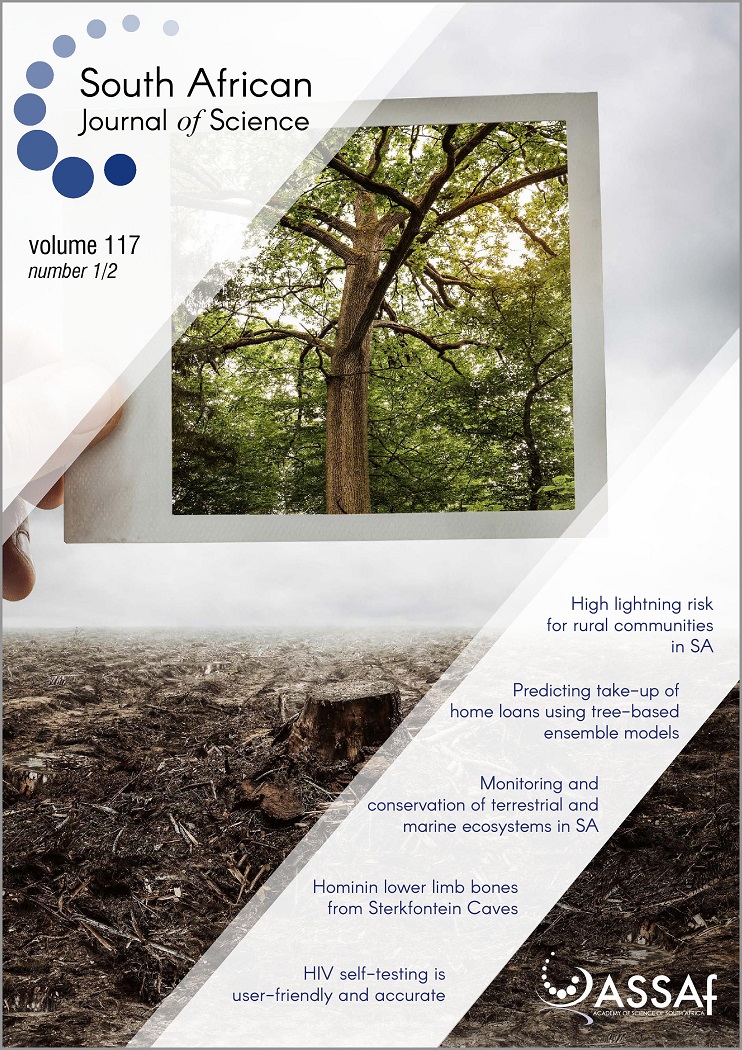Performance assessment of four HIV self-test devices in South Africa: A cross-sectional study
DOI:
https://doi.org/10.17159/sajs.2021/7738Abstract
HIV self-testing (HIVST) has been introduced to supplement existing HIV testing methods to increase the number of people knowing their HIV status. Various HIVST kits have been developed; however, in many countries, their entry into the market is contingent on either being listed as World Health Organization (WHO) prequalified diagnostics/products or being approved by that country’s health device regulator or both. In this cross-sectional study, we evaluated the usability, sensitivity and specificity of HIVSTs, as directed by the WHO prequalification literature. A boxed, sealed HIVST kit was provided to enrolled lay users with no further instruction, who then performed the test under observation. For each HIVST, a product-specific semi-structured checklist was used to calculate a usability index, while the sensitivity and specificity of each HIVST were calculated by comparing the HIVST results to the ‘gold standard’ – fourth-generation ELISA laboratory blood test. The average usability index was 97.1% (95.9–97.8%), while the average sensitivity and specificity were 98.2% (96.8–99.3%) and 99.8% (99.4–100.0%), respectively. We also diagnosed 507 (15.1%) HIV-positive participants from the general population. The average usability index, sensitivity and specificity were all comparatively high, and these results corroborate previous usability and performance studies from other regions. These results suggest HIVSTs are appropriate for the South African market and can assist manufacturers with readying their devices for final WHO prequalification evaluation.
Significance:
- This study has followed the WHO Technical Specification Series for the prequalification of HIV self-test devices, so the usability, sensitivity and specificity results may be used to inform the WHO prequalification process.
- The average usability index (97.1%), sensitivity (98.2%) and specificity (99.8%) were all very high, and these results support previous usability and performance studies from other regions, which suggest HIV self-tests are appropriate for WHO prequalification, and subsequently, the South African market.
- This study also diagnosed 507 (15.1%) HIV-positive participants from the general population – slightly higher than the national prevalence of 13.1%.
Downloads
Published
Issue
Section
License

All articles are published under a Creative Commons Attribution 4.0 International Licence
Copyright is retained by the authors. Readers are welcome to reproduce, share and adapt the content without permission provided the source is attributed.
Disclaimer: The publisher and editors accept no responsibility for statements made by the authors
How to Cite
- Abstract 909
- PDF 1124
- EPUB 157
- XML 232
- Supplementary Material 61
Funding data
-
Bill and Melinda Gates Foundation
Grant numbers OPP1132929












.png)